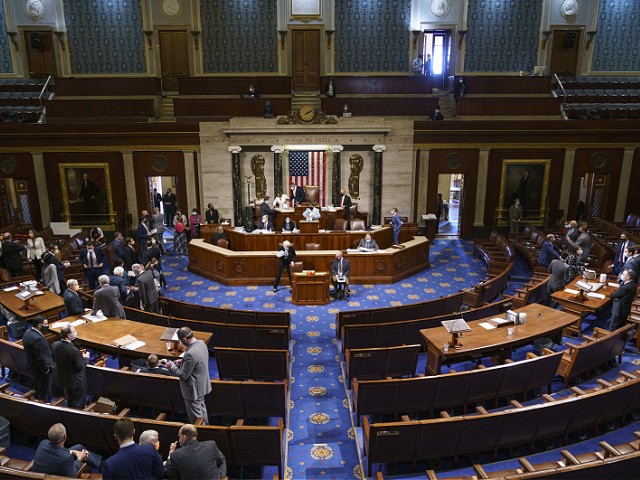A majority of New York Congressional Democrats sent a letter to House Speaker Nancy Pelosi (D-CA) and Majority Leader Steny Hoyer (D-MD), saying they may vote to oppose “any tax legislation that does not include a full repeal of the SALT limitations.”
Seventeen Democrats, led by Rep. Jerry Nadler (D-NY) and Rep. Thomas Suozzi (D-NY), signed the letter telling the House leadership they could oppose any piece of tax legislation if there is not a repeal of the State and Local Tax (SALT) limitations added in.
The two Democrats notably missing from the group are Rep. Alexandria Ocasio-Cortez (D-NY) and Rep. Kathleen Rice (D-NY).
Ocasio-Cortez in 2019 voted against repealing the SALT cap. Rice, who signed similar legislation and was a co-sponsor of the bill, did not sign the current letter, according to Forbes.
In the letter, the group of Democrats urged the Congressional leadership to repeal the SALT deduction limitations that were signed into law in 2017 by former President Donald Trump. The group said this issue has been critical to our state and constituents, saying they “reserve the right to oppose any tax legislation that does not include a full repeal of the SALT limitations.”
The group continued:
The full SALT deduction is a matter of fundamental fairness in avoiding double taxation of the same income and was a fundamental part of the income tax system since its inception in 1913. Prior to passage of the limitation 2017, the SALT deduction was essential to New York and other progressive states. Through the property and income taxes our constituents pay, the State provides expansive and comprehensive benefits to our neediest residents, excellent public education, and some of the best transportation infrastructure in the country. The SALT deduction ensured that New York State middle-class families were not taxed twice on their income, which is critical when New Yorkers already pay about $40 billion more in federal taxes than they receive from the federal government.
The Democrats said that repealing the limitations “would be important at any time,” going on to say this would help the residents in New York “continue to recover from the impact of COVID-19.”
“New York was hit first and hit hardest by the pandemic, and as a result, it lost over 1 million jobs in 2020. Over 10 percent of the state’s workforce vanished, with New York City taking the hardest hit and losing over 500,000 jobs,” the group wrote. The letter added, “Restoring the SALT deduction would ensure that the state is able to recover as quickly as possible without sacrificing the benefits on which our residents rely.”
In the letter, the Democrats said, Treasury Secretary Janet Yellen has also “indicated her willingness to work with Congress on changing the limitation and Majority Leader Chuck Schumer has introduced legislation to fully repeal the limitation.”
“It is imperative that the House of Representatives also act quickly to repeal the limitation. We stand ready to work with you on this critical issue, and we will not hesitate to oppose any tax legislation that does not fully restore the SALT deduction,” the Democrats stressed.
Suozzi, who was one of the Democrats to lead the group, wrote in a press release:
Our effort to restore the SALT deduction is gaining momentum. My thanks to Chairman Nadler, the Dean of the New York delegation, for his leadership and all of my NY colleagues that are fighting for New Yorkers. …The cap on the SALT deduction has been a body blow to New York and middle-class families throughout the country. Over the coming months we will work with House Leadership and the White House to highlight the middle-class families unfairly hurt by the SALT cap. At the end of the day, we must fix this injustice. No SALT, no deal.
New York Democrat Sen. Kirsten Gillibrand (D-NY) told a reporter from Punchbowl News when asked about the letter, “I fully support SALT restoration.” During a follow-up question about whether she should vote against a bill without it, Gillibrand responded, “We’ll see what happens.”
Currently, Pelosi has a very slim majority; the House Speaker might compromise to pass legislation.
